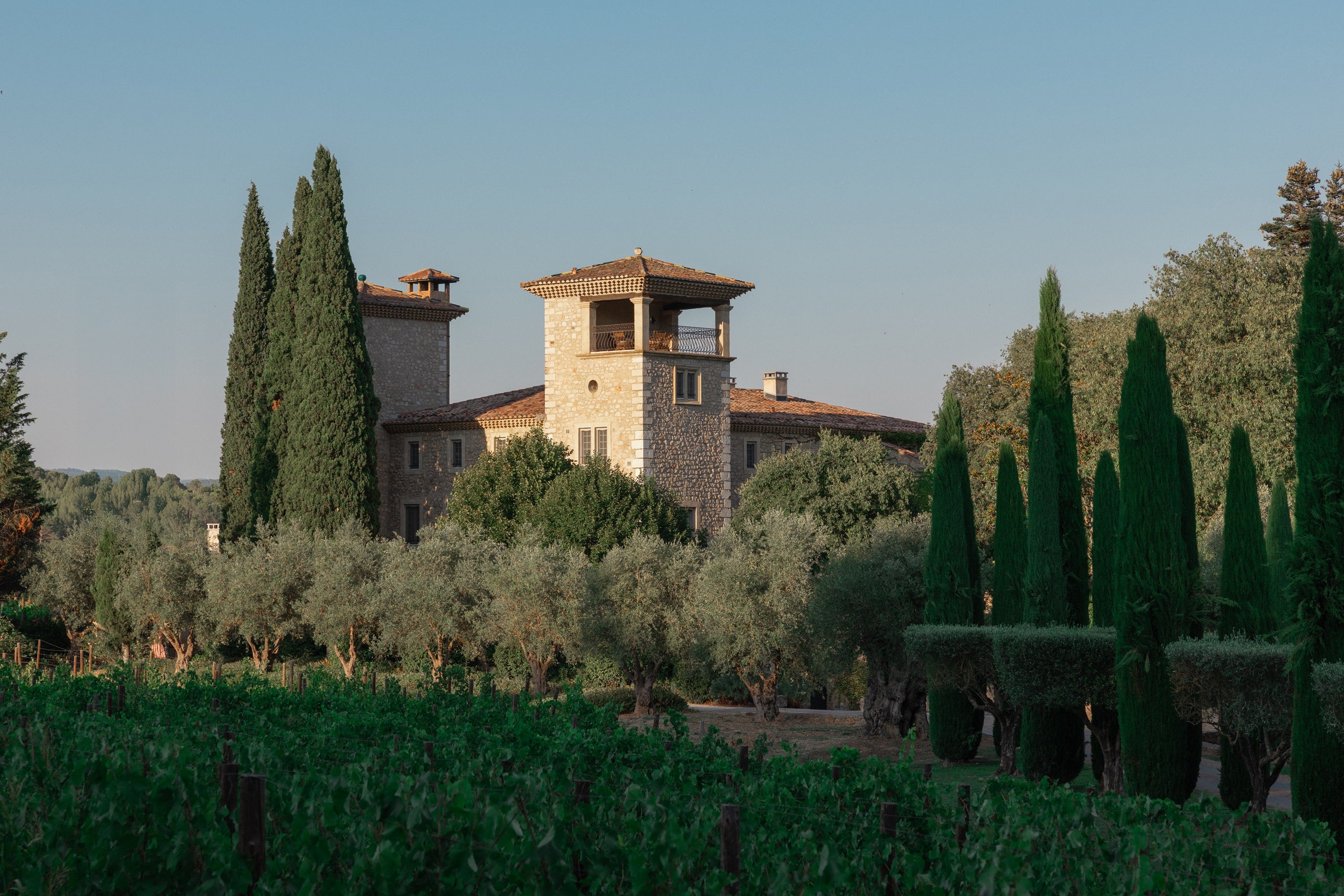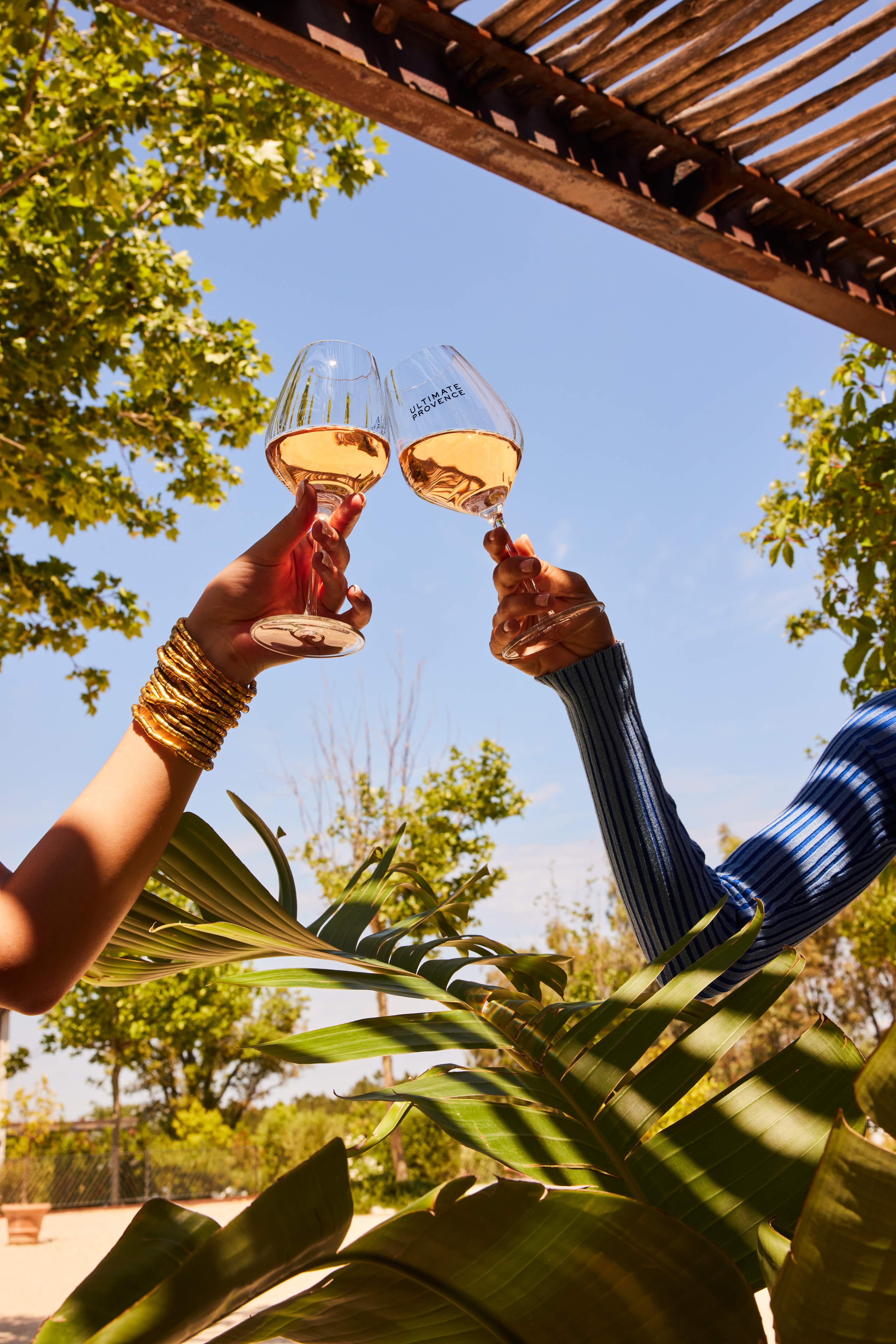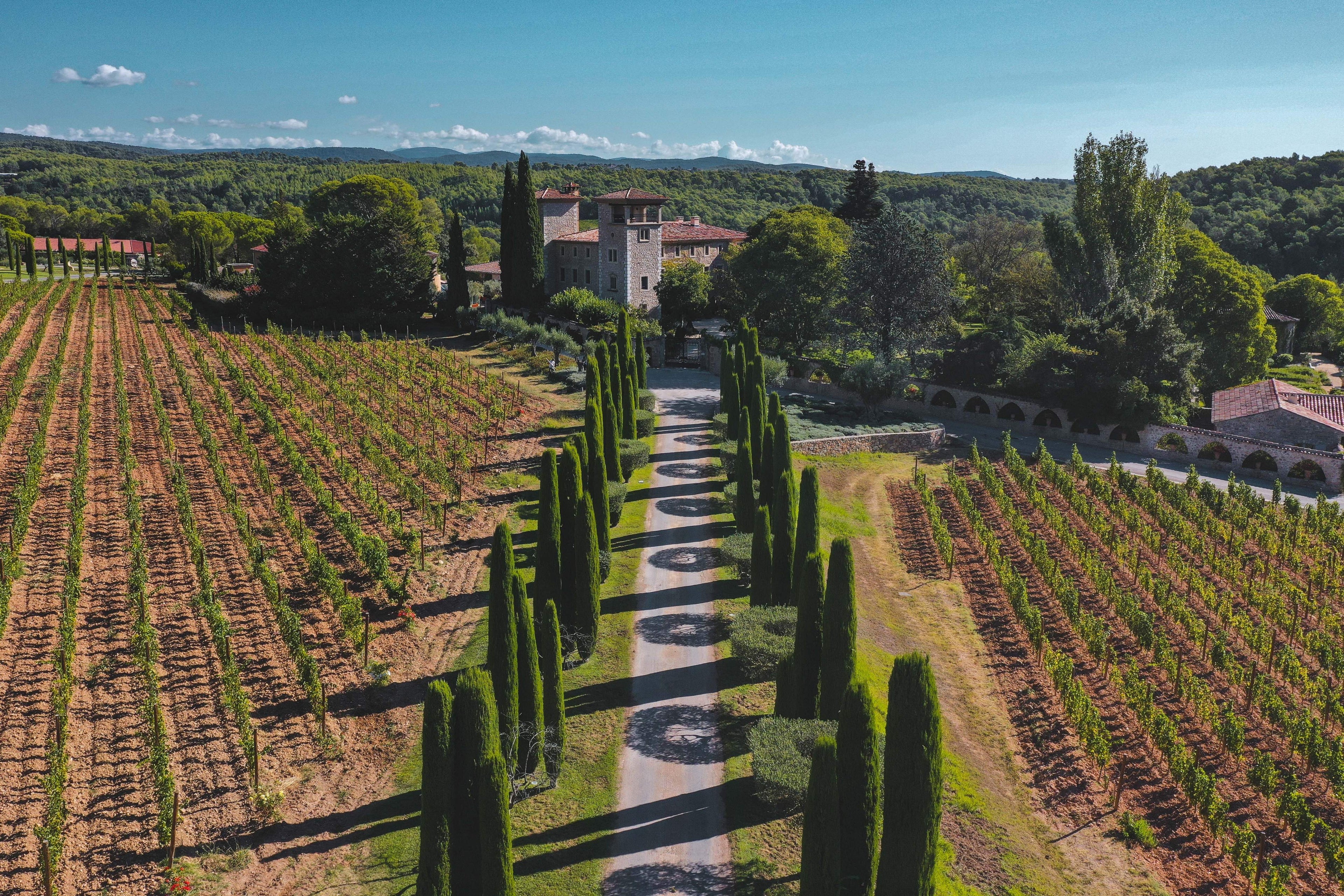
Invitation to travel in the heart of a relay and castles in Provence
In the Provencal hinterland, in the heart of 1000 hectares of nature, a small road winding between forest and olive fields leads you to the castle of Berne, relay and 5-star castles in Provence. The trip begins with the different wines of the castle, which all come from 150 hectares of organic vines. It continues with experiences around nature and a certain idea of the art of living in Provence. Ideal for discovering the Southern Wine Route.
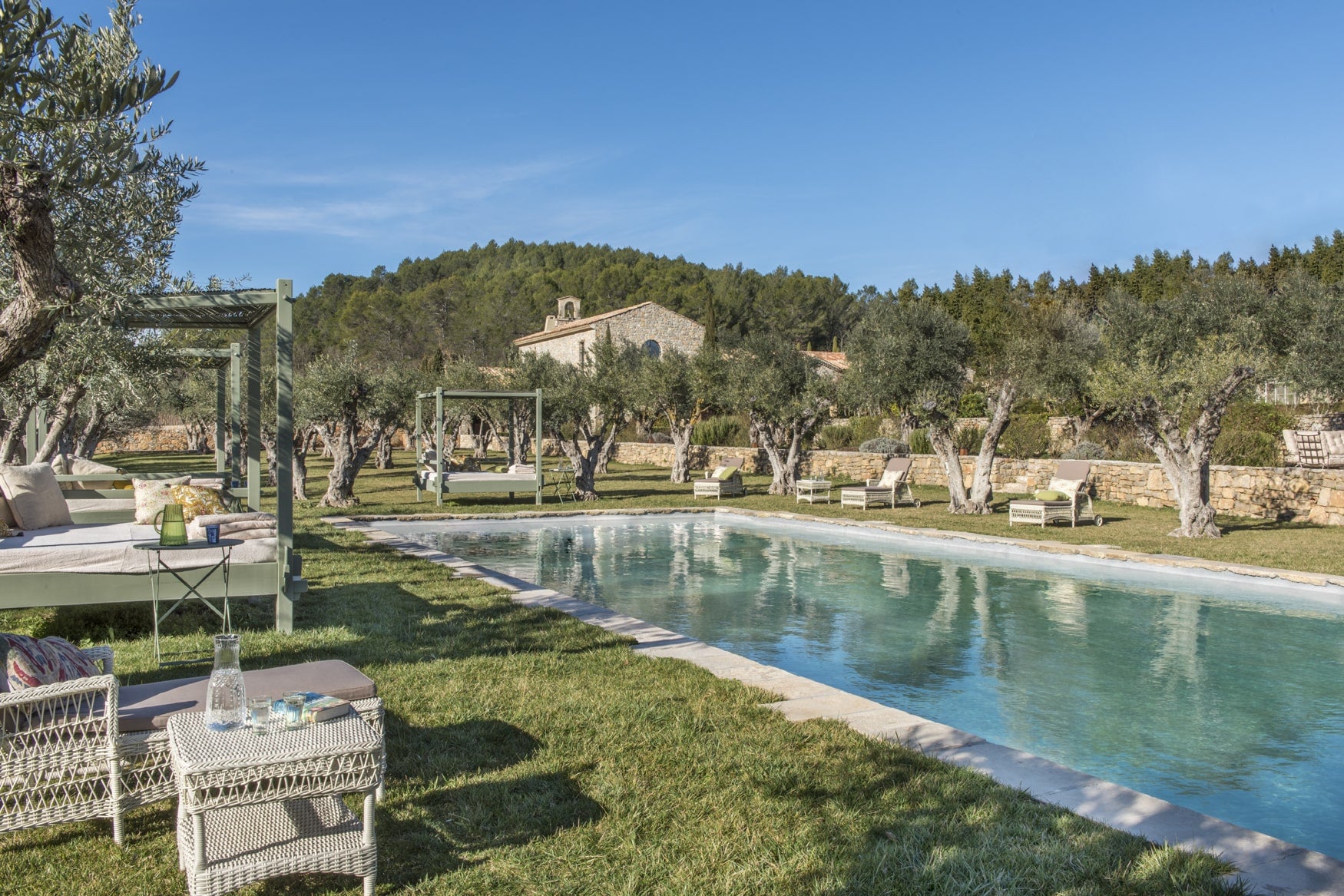
Land of Inspiration and Health
With wilderness and an emblematic vineyard, our 5 -star hotel in Provence offers To live sensory experiences, where pleasures and refinement embody the art of living in Provence. Whether through its offer of hotel relay and 5*castles, its castle and its private villas, its Michelin star table recognized for its eco-responsible approach or its multiple activities, such as the spa or cooking lessons, the castle de Bern offers the promise of an unforgettable stay. Ideal for gastronomes, oenophiles, sports, adventurers or contemplative.
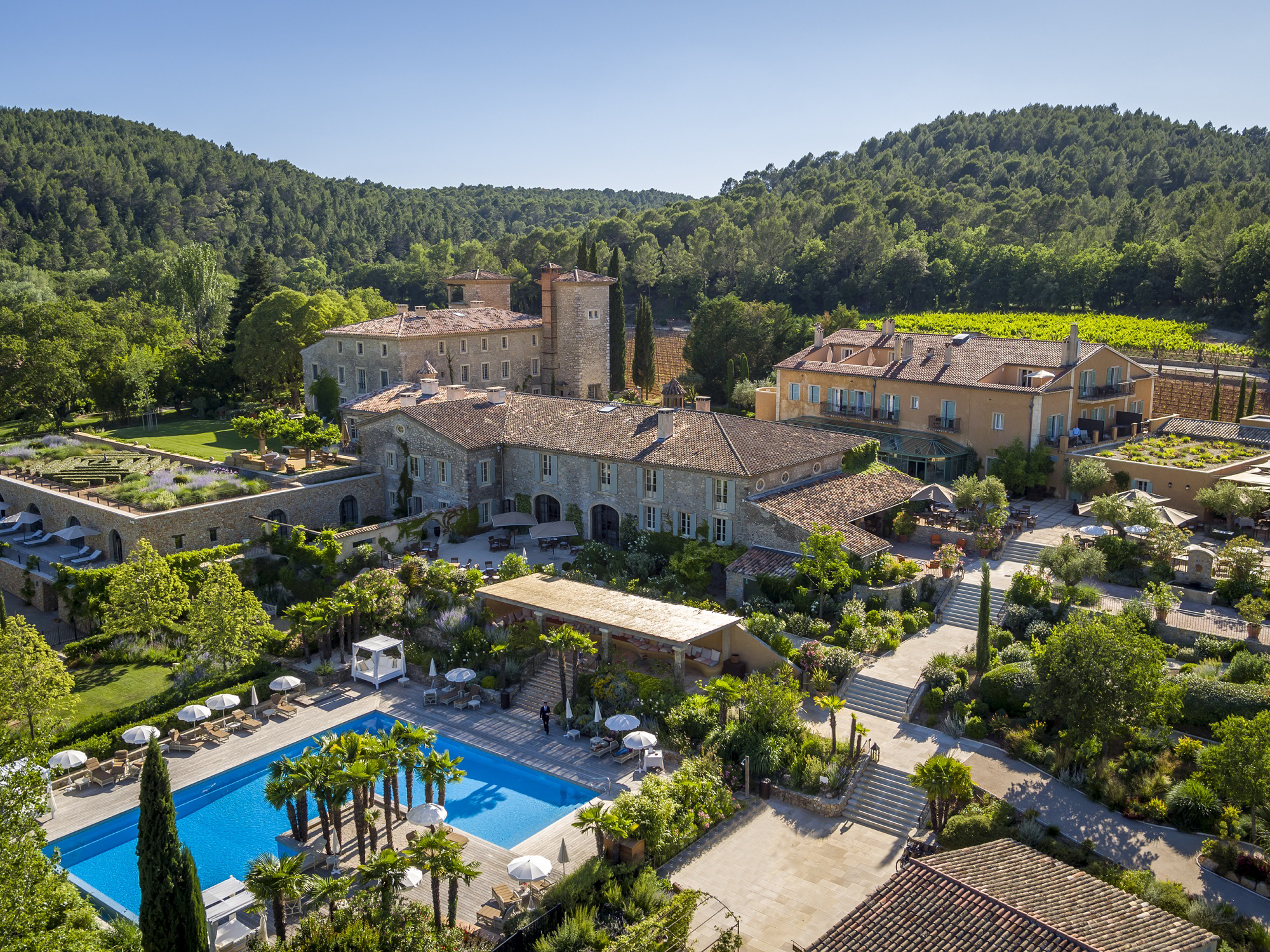
A trip to the heart of Provence
With its 34 rooms and its villas Offering a breathtaking view of the vines, the Château de Berne combines luxury, calm and voluptuousness in a neat decoration that subtly evokes the Provencal art of living.
Vineyard in Provence
Discover our vineyard and our Provence wines
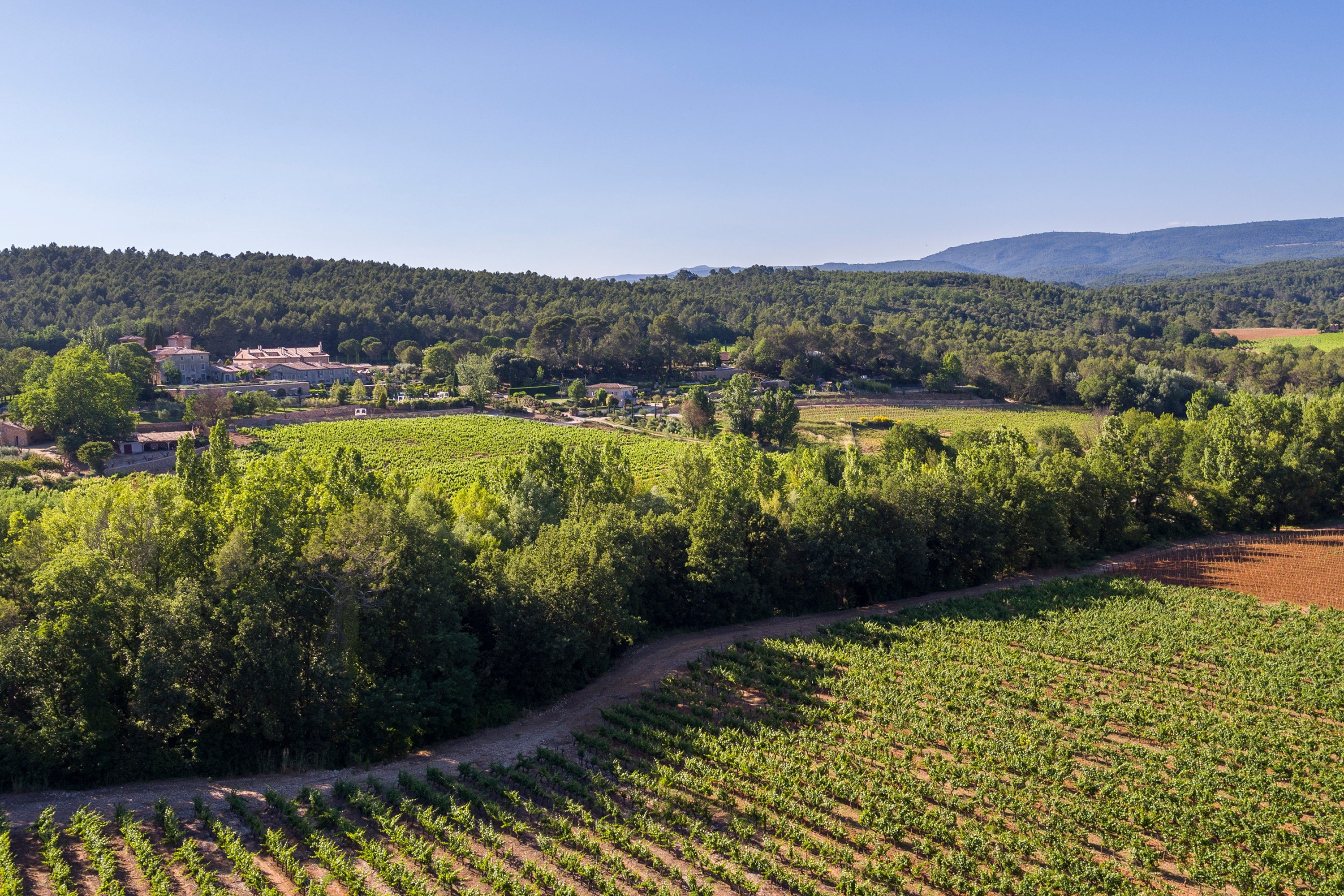
Our vineyard in Provence
Covering an area of 150 hectares, the vineyard is located on the Triassic plateau which is based on a limestone base of the average and lower Jurassic.
The estate is protected by 800 hectares of forest. The fresh nights of Haut-Var ensure a slow and optimal maturation of the grapes. If rosés arrive at maturity later, this gives structured wines with outfit that is particularly suitable for food & wine agreements of contemporary cuisine.
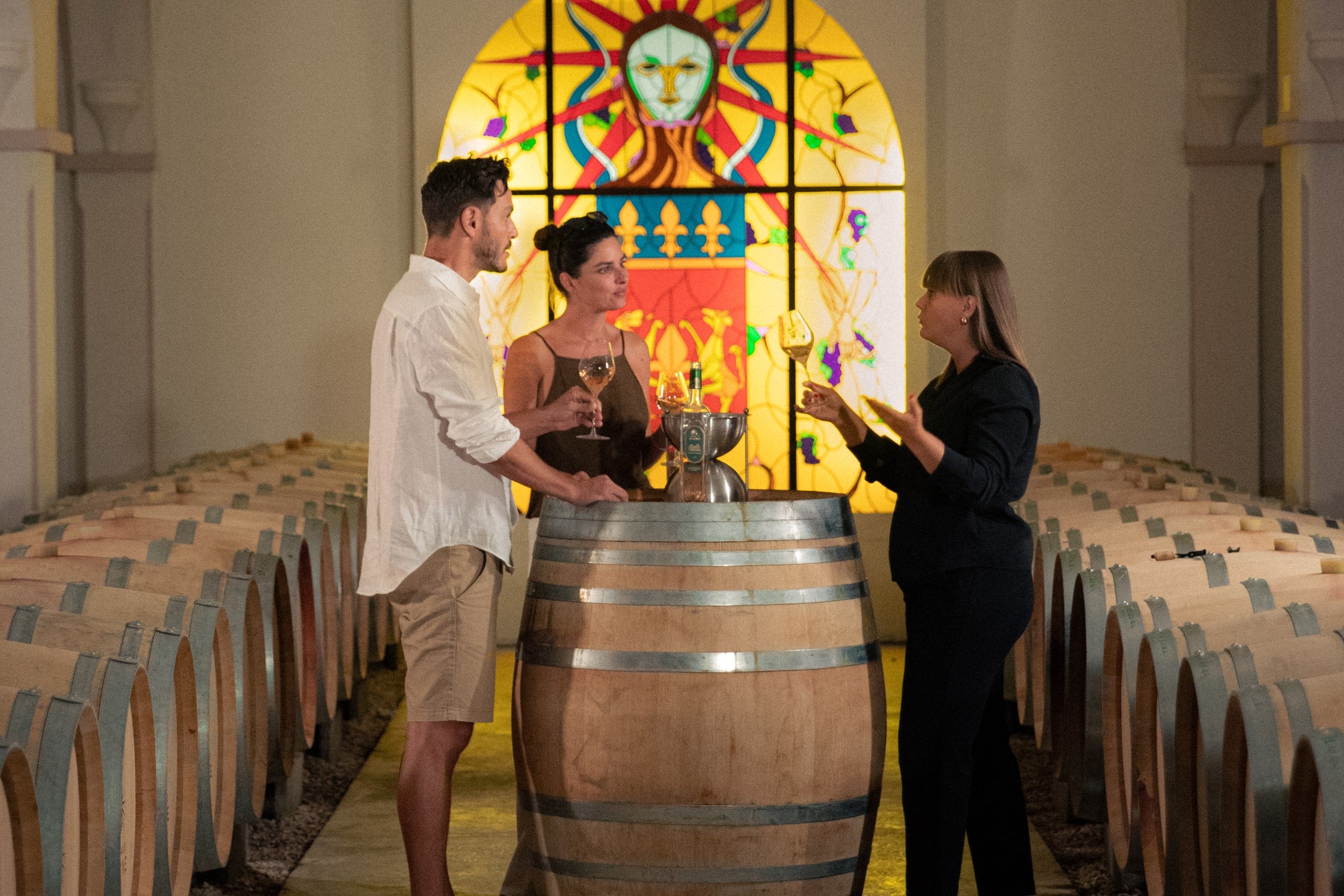
The Domaine du Château de Berne
The wine estate of the Château de Berne produces Côtes de Provence Rouge, rosé and white, recognized among the references in the region.
Discover the mysteries of our terroir converted into organic farming and our innovative facilities.
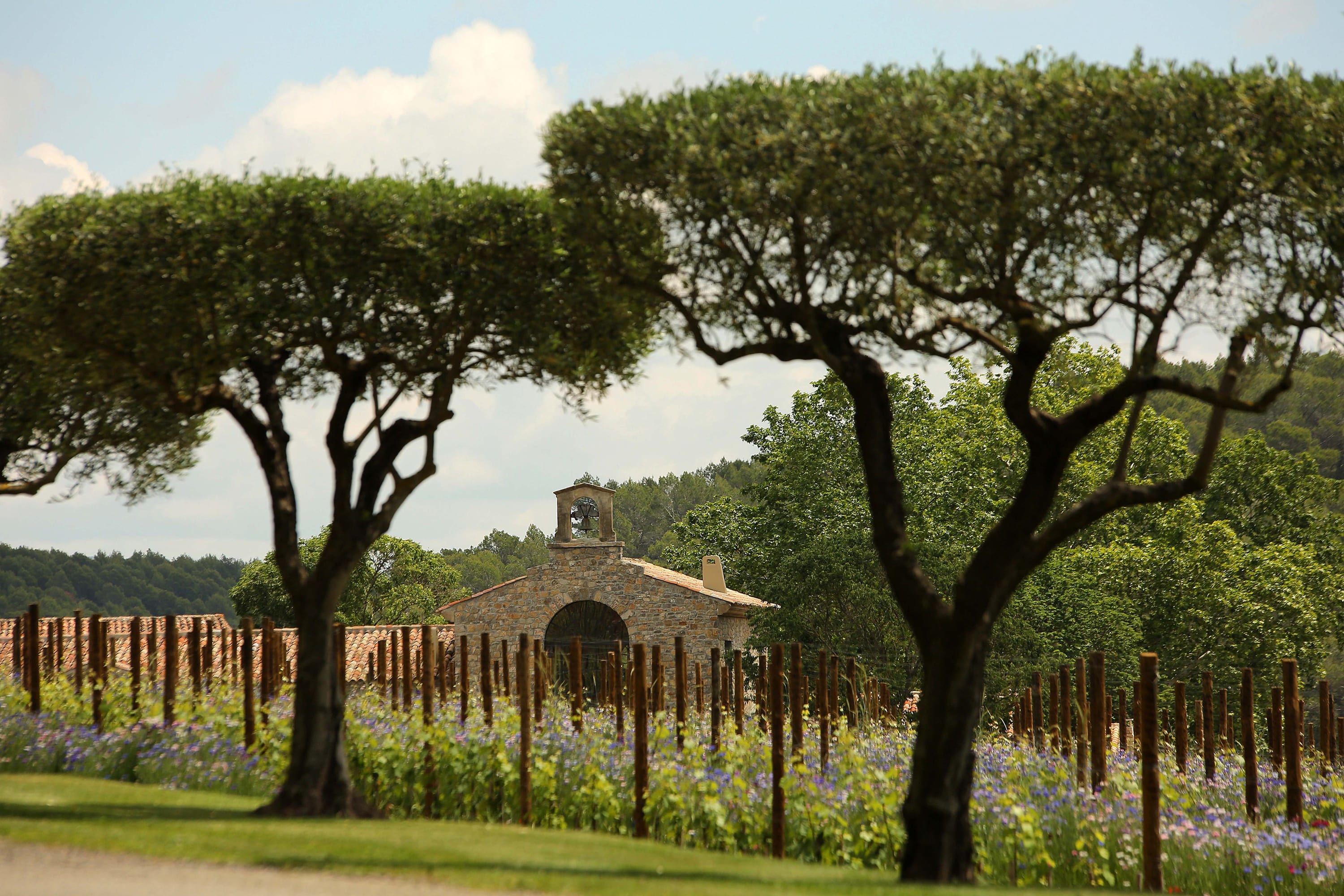
A Blessed Provençal terroir
Well known for its pink wines, Provence is much less so for the diversity of its terroirs. Just for the Côtes de Provence appellation, no less than six large areas are distinguished from east to west.
Among them, the terroir of the Château de Berne is on that of the Haut-Pays, made up of limestone hills and valleys. This is the Provence of the interior, unknown and secret, which offers structured red wines and white and rose wines while delicate.
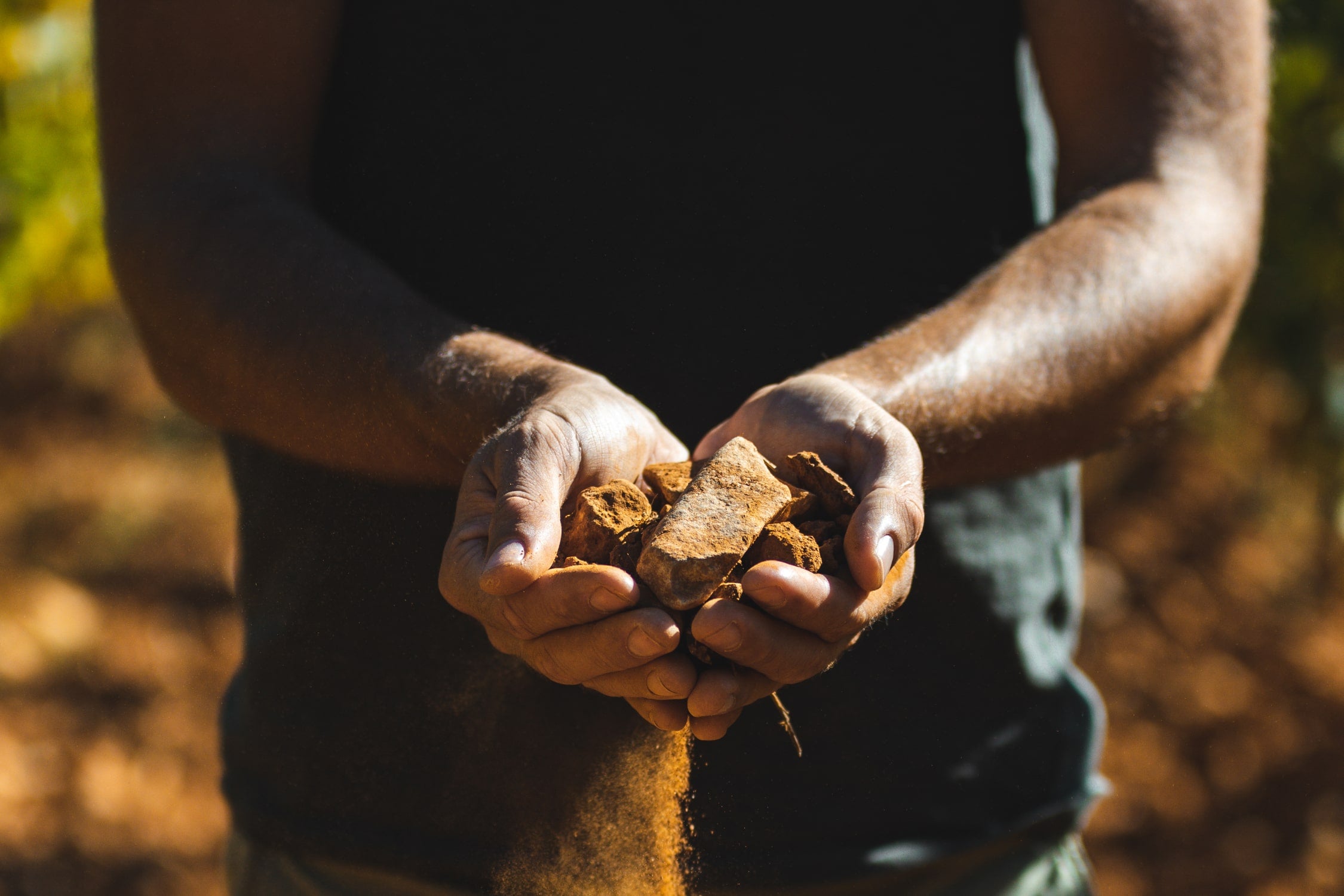
A single geological diversity
Two distinct entities in terms of geology and altitude characterize this terroir. The heart of our vineyard in Provence (80 % of vines) is located on a limestone plateau located at 300 meters above sea level. This elevation brings cooler nights: the thermal amplitude allows a slower maturation of grapes, which offers more freshness and aromatic finesse to wines.
On this tray, limestone dominates and brings good drainage of the rains, allowing the vines to go and draw this water in depth and to offer the grapes their famous "minerality". At tasting, it results in great subtlety, salinity and tension.
The remaining 20% of the vineyard is around the castle, on light and sandy soils, which bring wealth to wines.
This geological diversity, combined with that of grape varieties, offers a variety of choices essential to the development of assemblies of the different cuvées in the field.
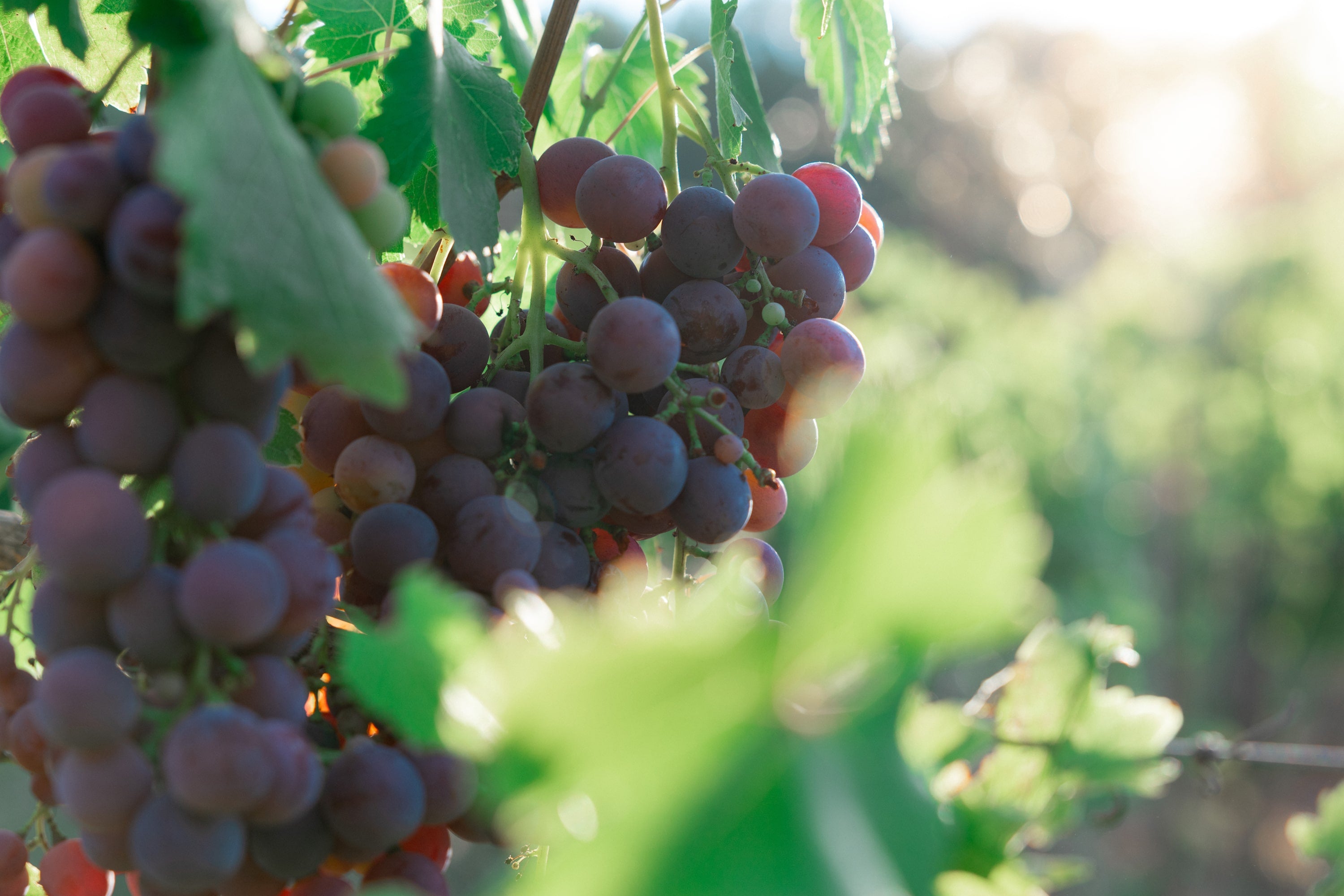
A vineyard of organic Provence
Since February 2021 the 175 hectares of the estate have been certified in organic farming. This approach is part of the will of the Bern castle to protect a particularly generous nature, but also the men who work there.
The wines are also shaped in this path respectful of nature and men to best express this specific terroir.
Alexis Cornu, oenologist
« Between the too wooded wines of the 90s and the dictatorship of today's fruity, we believe that there is a path of elegance to develop a rosé of gastronomy. Wood should not increase the wine, but bring it more volume and aromatic complexity. He must also bring good conditions to the wine to age better. »
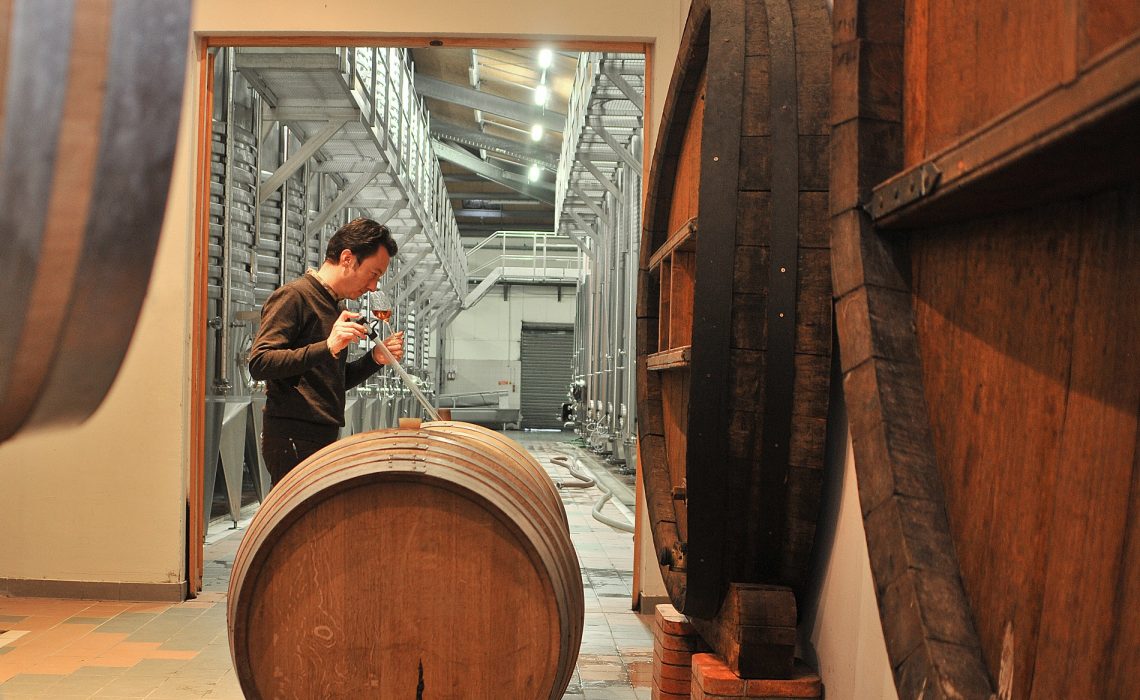
A visionary oenologist
Among the recent innovations in the field, he actively participated in the development of the new rosé cuvée of the Château de Berne. A small part of the assembly has fermented in selected wood barrels and was raised for several months. A new vinification method which required some changes upstream, in particular in the choice of the plots selected to constitute the assembly, and a maceration time (contact of the juices with the skin of the grapes). An assertive bias to make a high-end and gastronomic Provence rosé, cut for guard.
